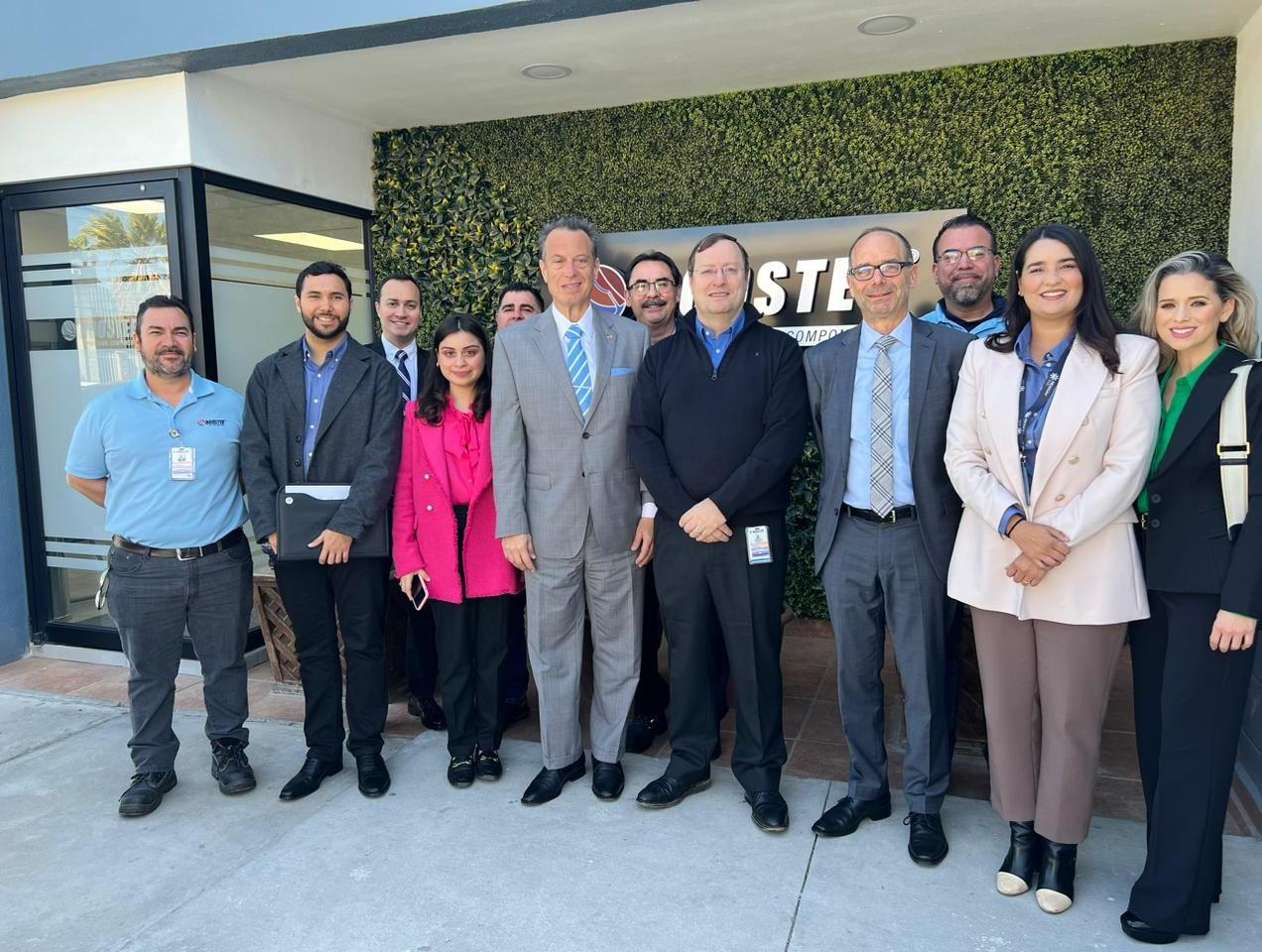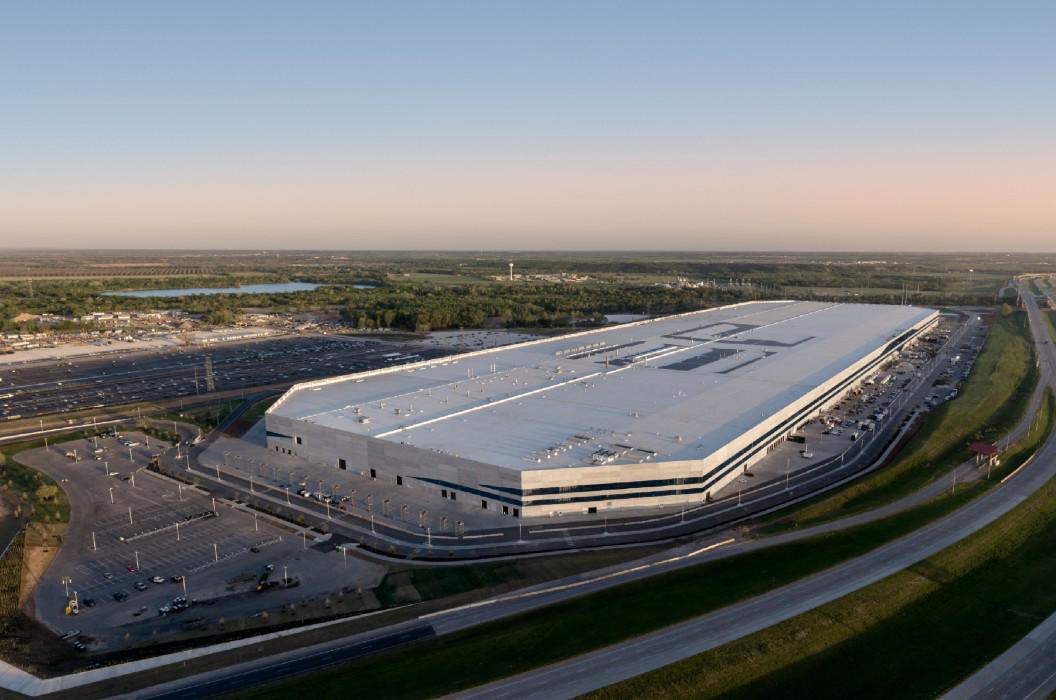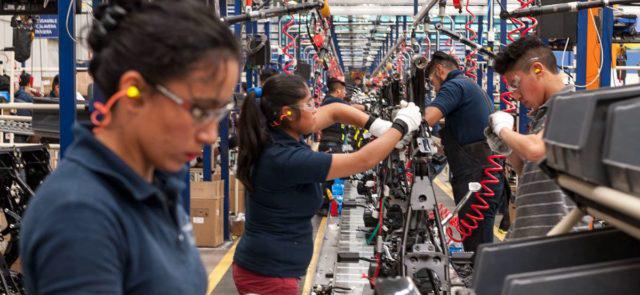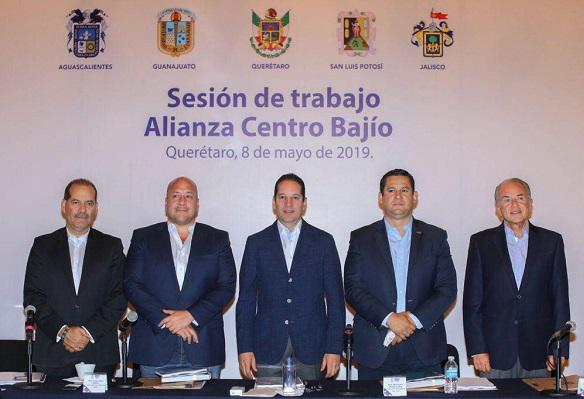
4 minute read
NEWS BY STATE
BAJA CALIFORNIA
Officials from the German embassy in Mexico visited Mexicali, Baja California, as part of Probaja’s effort to promote nearshoring and industrial development in Mexico. During the visit, the embassy representatives met with government officials to foster a better understanding of the area and strengthen ties with important government chambers and state representatives, such as Norma Alicia Bustamante, mayor of the city of Mexicali.
Advertisement
Sonora

Sonora has focused on attracting investment, looking for semiconductor companies, automotive manufacturers, production of cell phones and other technological products, so that since Mexico is a strategic ally of the United States, the location of the entity could serve as a complement to the economy of the neighboring country to the North, especially when it comes to more labor-intensive companies.
Jesús Gámez García, president of the National Council of the Maquiladora and Export Manufacturing Industry (Index) in Sonora, highlighted that with the announcement of the installation of a Tesla plant in Nuevo León, there is an important opportunity to participate in the supply chain.
Nuevo Leon

It is expected that the installation of the new Tesla plant in Nuevo Leon will increase by 450% the current number of companies installed in Mexico that are already suppliers of the Tesla factory in the United States.

In Mexico, there are already around 127 Tesla suppliers for its Texas plant.
Coahuila


A total of 700 young people from seven universities in the region are the beneficiaries of the scholarships that the Municipal Government of Saltillo in conjunction with the Siemens company offer in order to study a specialization in new technologies.
The technological innovation company, Siemens, will invest over 50 million pesos in these industry specialization scholarships.
Tamaulipas
The establishment of clusters of the aviation and aerospace industry throughout the country promotes Mexico as a potential direct supplier of companies in this sector. For this reason, the Tamaulipas Aerocluster has been created, which, in the first instance, will seek to contribute to increasing the state’s air connectivity both in cargo and commercially.
Guanajuato

With an investment of more than 3.3 billion dollars and a commitment to generate more than 21,600 jobs, 51 domestic and foreign companies have expanded their operations in Guanajuato during the current state administration. The companies that have expanded their operations inside and outside the Industrial Corridor in municipalities such as Apaseo el Grande, Celaya, Irapuato, Leon, Salamanca, San Jose Iturbide, San Miguel de Allende, Silao and Villagran. Some of the companies that have renewed their confidence in the state are: Pirelli, Mazda, Michelin, Denso, Ferrero, Volkswagen, Nestle-Purina, Procter & Gamble, Kromberg & Schubert, among others.

Queretaro

Aguascalientes, Guanajuato, Jalisco, Queretaro and San Luis Potosi formed the Agency for Central-Bajio-West Economic Cooperation (ACBO). The purpose of this new agency is to create joint strategies and actions to promote the economic development of the region, highlighting the competitive advantages of the entities that comprise it. With this objective, it seeks to have an impact on the attraction of new investments. The agency will work in four areas: energy capacity; the development of skilled labor for demand; the development of new supply chains; and the exchange of best economic practices. The five entities also plan to work on generating higher-paying jobs, promoting support for entrepreneurs, attracting investment and improving regional competitiveness.

San Luis Potosi
“The supply companies that will soon be installed in the State must be updated to electromobility; we must guarantee a balanced growth to continue attracting investments”. The head of the Secretariat of Economic Development, Juan Carlos Valladares Eichelmann, spoke of the privileged moment that San Luis Potosi is experiencing with the arrival of more and more companies, with investments that will generate growth in the state; as well as his personal and political aspirations. The official warned: “The situation we are living, both in the country and in the State, is privileged in terms of industrial attraction, this speaks of the goodness and the vocation that the State has in this matter. At the same time, an announcement of this magnitude shows that things are being done well and that there is certainty in terms of investments”. This is something beneficial for the whole sector, he added, and at the same time, more good things are to come.
Cdmx
The Metropolitan region of the country is the most relevant in terms of the commercial potential of nearshoring with neighboring countries in North America, according to Banorte’s analysis area. Following the publication of the report Nearshoring could unleash Mexico’s potential, the banking group conducted an analysis of the commercial dynamics related to the relocation of the country’s supply chains and subnationals. Banorte divided the country into six regions: Metropolitan, Peninsular, Central, North, Northwest, and West. According to the study, in the context of nearshoring, the Metropolitan region has the greatest opportunities at the sectoral level because it concentrates an automotive cluster that covers 23.6% of the total export market in this sector.

STATE OF MEXICO:
During its first year in office, fifteen of Mexico’s 125 municipalities contracted debts at different terms and for different amounts, such as simple credits or shortterm obligations. However, as of the first days of March 2023, no new acquisition of credits has been reflected. The municipalities that have contracted debt in this administration are: Villa del Carbon, Almoloya de Juarez, Timilpan, Tlalmanalco, Cuautitlan, Teoloyucan, Amecameca, Joquicingo, Toluca, Valle de Chalco, Soyaniquilpan, Otumba, Texcaltitlan, Zinacantepec, and San Jose del Rincon. Most of them are to be paid in this fiscal year 2023, or in 2024, that is to say, within his administration, and while some are for productive public investment, that is to say, to carry out works, others have been acquired to cover temporary liquidity shortages. The amounts range from more than six million in the case of six million for Joquicingo, to 170 million pesos for the municipality of Toluca.






